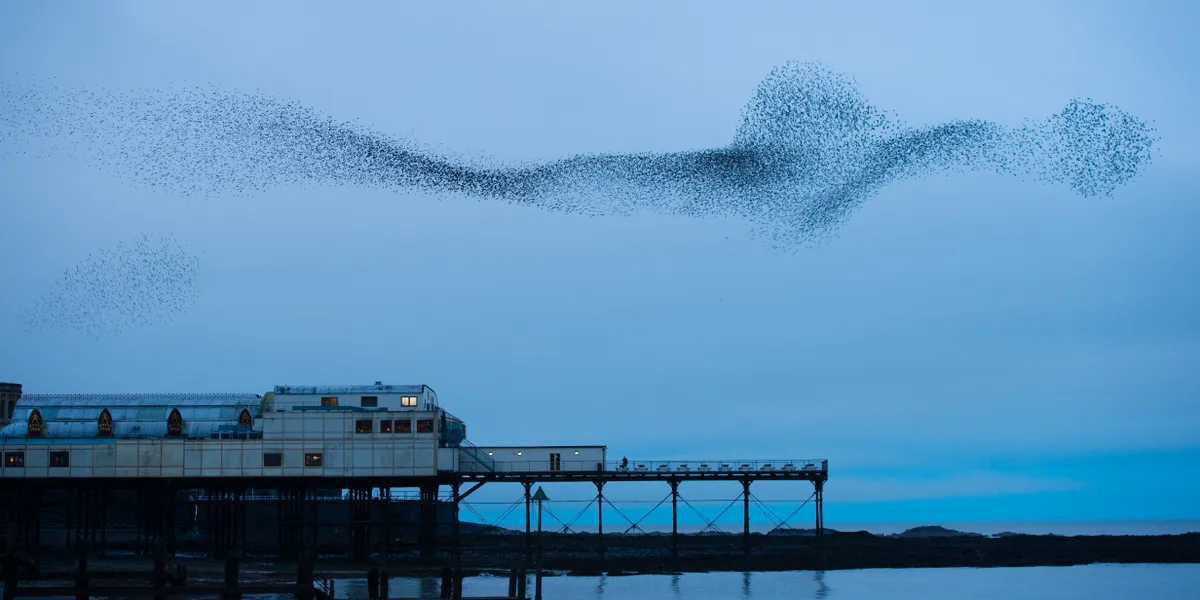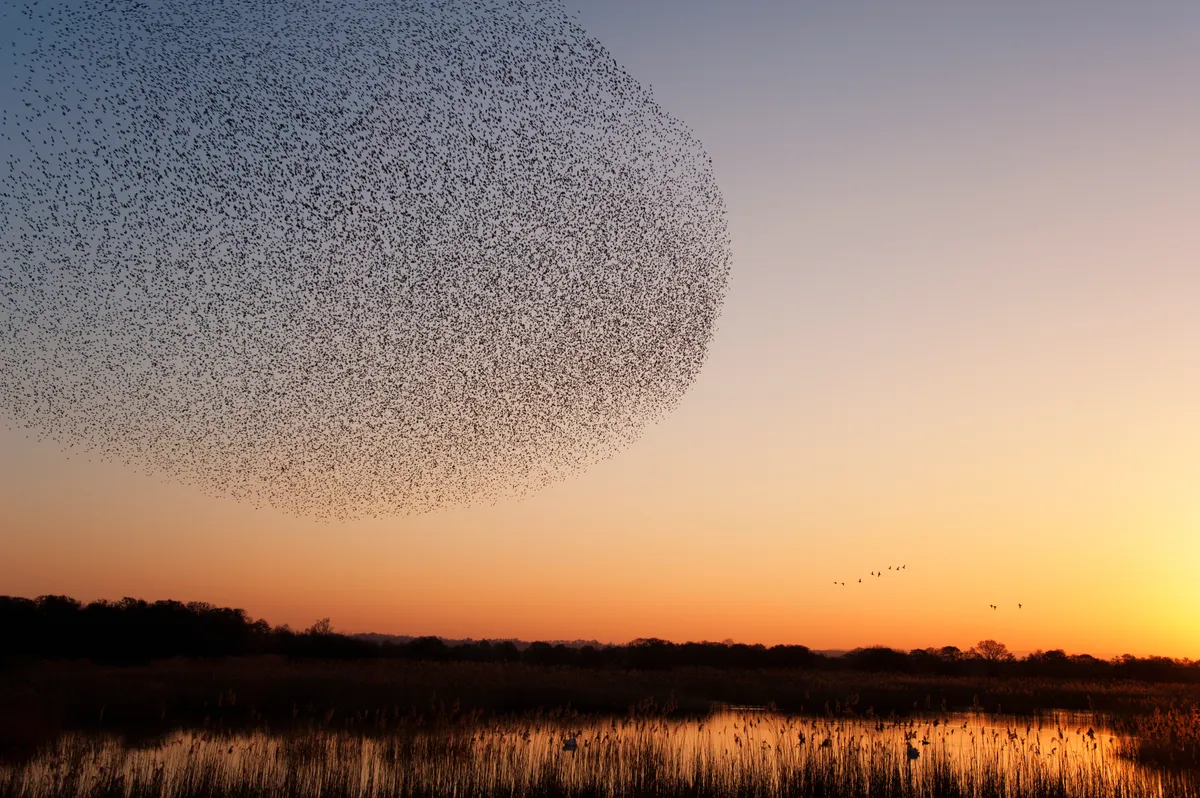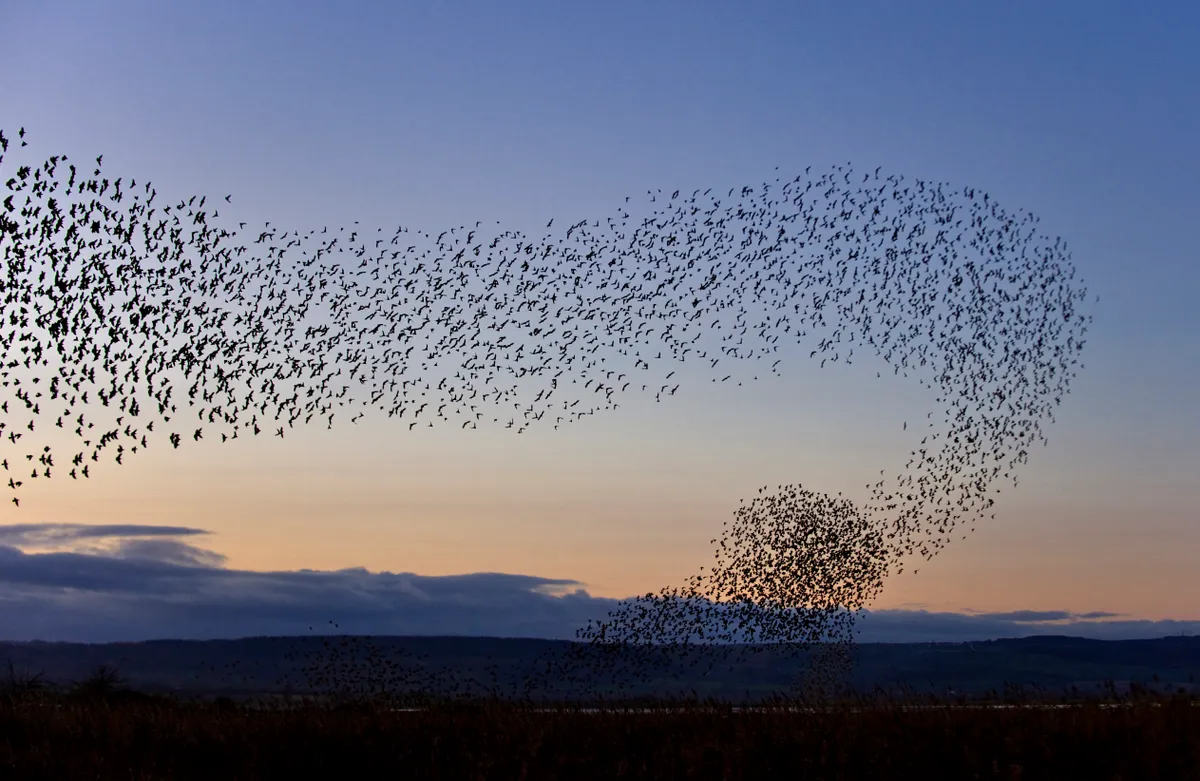As autumn progresses, the UK starling population doubles to 16 million birds. They land en masse and nestle together to keep warm and (so the theory goes) chatter about good feeding grounds.
Reedbeds and large buildings with ledges are favoured roost sites, but woods and cliffs are used as well. Starlings often switch roost sites, so try to get up-to-date local information before you set off.
Check the forecast, too: the most extrovert displays are in clear, calm, cold conditions. Wrap up warm, arrive an hour before twilight and select your viewpoint carefully: do you prefer the descending sun to illuminate the starlings or provide a crimson backdrop?
Understand starling roosts
Shape-shifting congregations of thousands of starlings at dusk, called murmurations, have an almost volcanic energy.
“Carousels of birds chimed and merged, like iron filings made to bend to a magnet,” writes birder Tim Dee in his book The Running Sky. But explaining how starlings gather in such numbers and mostly avoid midair collisions (fatalities are known in some flocking species) has long provoked much debate.
A multi-disciplinary study, published in 2014 by the University of Warwick, found that flock density is key.
“A bird is safer from predation if it joins a big, dense flock,” says researcher Dan Pearce. “So in theory large flocks would eventually be totally opaque. But we discovered that birds select the optimum density so they never quite get that packed. If you look at photos of flocks, there will always be gaps where you can see the sky.

“Each starling constantly monitors the trajectories of about six or seven of its nearest neighbours, while also making adjustments so that it can still see light areas – that is, patches of sky. It must always be able to gather vital information about its surroundings.” Amazingly, this process is entirely instinctive. “The birds do it almost without thinking,” says Dan.
By Jo Price
Best places to see murmurating starlings in the UK
Gretna Green, Dumfries & Galloway, Scotland
Roost site is mobile, but usually just east of the M6 services.

RSPB Salthome, near Middlesbrough, England
Flocks gather against a dramatic backdrop of heavy industry.
RSPB Leighton Moss, Lancashire, England
A medium-sized reedbed roost, as featured on BBC Two’s Autumnwatch.
Shapwick Heath / RSPB Ham Wall, Somerset, England
Probably Britain’s largest roost. It is very popular with visitors, so try to avoid weekends when parking can be a problem. Featured in main image.

Albert Bridge, River Lagan, Belfast, Northern Ireland
The largest starling roost in Northern Ireland. Big city-centre roosts such as this have sadly become uncommon nowadays.
RSPB Newport Wetlands, Gwent, Wales
This large reedbed roost attracts the attentions of the local pylon-nesting peregrines.
Royal Pier, Aberystwyth, Ceredigion, Wales
Watch from on the pier itself or along the seafront parade.

RSPB Fen Drayton Lakes, Cambridgeshire, England
The most accessible of several starling roosts in the Fens.
RSPB Strumpshaw Fen, Norfolk, England
A large reedbed roost in the Norfolk Broads.
RSPB Cors Ddyga, Anglesey, Wales
In recent years this wetland reserve has hosted a huge starling roost.

Lower Marsh Farm, Wiltshire, England
Watch from Sandpool at this Wiltshire Wildlife Trust reserve near Malmesbury.
Snape Maltings, Suffolk, England
Starlings roost in the tidal reedbed here, and big flocks can be seen wheeling around over the River Alde and surrounding marshes.
West Pier, Brighton & Hove, England
Huge starling flocks gather along the Brighton and Hover seafront to roost on the pier.

